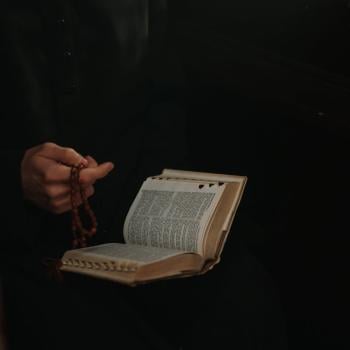Who makes more sense? Enter Rev. Charles J. Chaput, the Roman Catholic Archbishop of Denver, Colorado. Archbishop Chaput is not a man who can be credibly accused of operating from a theology of "Christian Dominionism," as some of Palin's more excitable detractors say she does. But in phrasing that Sarah Palin would approve, Chaput called JFK's 1960 speech "sincere, compelling, articulate—and wrong."
Speaking this past spring at Houston Baptist University, Archbishop Chaput noted that "Real Christian faith is always personal, but it's never private." That was one of the things about which John F. Kennedy was mistaken. Moreover, said Chaput, Kennedy's remarks in Houston "profoundly undermined the place not just of Catholics, but of all religious believers, in America's public life and political conversation." And "Today, half a century later, we're paying for the damage."
In other words, Sarah Palin's criticism of the Kennedy approach to faith accords substantially with criticisms offered by another Christian of unquestioned acumen. Not only that, but Chaput came loaded for bear, quoting another scholar to buttress the point that John F. Kennedy "secularized the American presidency in order to win it."
This is not a debate that Townsend can win. She thinks Sarah Palin is making a subtle bid for a new Inquisition, but if Townsend had familiarized herself with Archbishop Chaput's similar argument, she would have known better. Instead, she writes about the "deep current of faith" in the Kennedy family, praises Uncle John for courage of the kind that Henry V tried to kindle in his men before the Battle of Agincourt, and dances around Senator Ted Kennedy's support for abortion (correctly described by Sarah Palin as "directly at odds with his Catholic faith") by disingenuously suggesting that Catholic moral teaching is of no more import than whether the Third Sunday of Advent is marked by rose-colored candles, because "the hierarchy's positions can change," and "in our church, we have an obligation to help bring about those changes."
Ha! We may as well cry havoc and let slip the dogs of war, because Townsend leaves no room for concepts like fidelity to "the deposit of faith" or (as Christians in the Reformed tradition sometimes put it) "standing firm in the faith once delivered to the saints."
When Palin contends that "morality cannot be sustained without the support of religious beliefs," Townsend misreads this acknowledgement of our collective debt to Judeo-Christian intellectual and religious capital as "a wholesale attack on countless Americans." Has she never heard John Adams' famous quip that "Our Constitution was made for a moral and religious people; it is wholly inadequate to the government of any other"?
It should also be remembered that threats of theocracy do not typically come from Christians. John Calvin is long dead, the church courts of the Spanish Inquisition were more often merciful than the state courts of the same time, and—apart from being a fractious bunch—we Christians are the "Give to Caesar what is Caesar's" people. Connecticut's Danbury Baptist Church was in on the ground floor of Jeffersonian thinking about the separation of church and state, and William Penn was famous for showing why a concept that worked at the federal level should not be taken as holy writ by the states. Not to get all triumphalist about it, but—like the concept of free inquiry in universities-- religious freedom is an outgrowth of Christian theology, not the other way around.
Townsend's essay shows no evidence of her having considered any of that. Instead, one gets the impression that she agrees with the people who think Sarah Palin pines to turn America into a heaping helping of God, Gold, and Guns, as though the only diversity for which Palin and her ilk have any respect is a diversity of greenback denominations and shell sizes.
What those critics never explain is what gives them reason to think Sarah Palin would settle on God, Gold, and Guns as the unifying thread for every American from Booker T. Washington to Marco Rubio, Alvin York, and Mia Hamm. Ignoring weasel wording from high-profile Kennedys and other purveyors of the "religion is private" line in their own camp, critics charge Palin with "extremism" and hope (to God?) that the charge sticks. Oddly enough, some of them tried the same tactic with "Cowboy" George W. Bush and "Nap-taker-in-Chief" Ronald Reagan. Perhaps the "politics of personal destruction" is the leftist version of "Now bring us some figgy pudding."
They'll have to do better if they hope to be persuasive.




